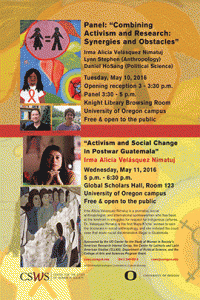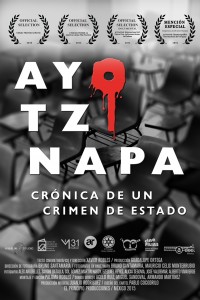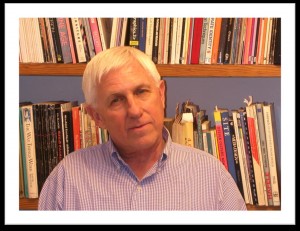Past Events
LALISA Conference: April 13-15
UNIVERSITY OF OREGON
Peripheral Mappings: Social and Cultural Geographies from the Underside of Modernity
Conference Information
Click here for conference materials and here for a Full Program.
From March 4th to October 8th, in the Jordan Schnitzer Museum of Art, Schnitzer Gallery: Diálogos
Program
April 13-15, 2017 University of Oregon
Times/locations subject to change
Thursday April 13 (JSMA Ford Hall)
1:30-2:00 Registration
2:00-4:00 CSWS-Sponsored Round Table: Achieving justice: Gendered Violence, Displacement, and Legal Access in Guatemala and Oregon.
4:00-4:30 Coffee Break
4:30-6:00 Keynote Address Arturo Arias. “Cosmovisions, Ch’ulel, Lekil kuxlejal? Alternative Knowledge Producers as Purveyors of Self-Generated Cognizance”
6:00-8:00 Faculty Club Reception and Cash Bar (JSMA)
Friday April 14
Light Breakfast 8:30-9:00. (Knight Law School)
9:00-10:30 Panel Set 1. (Knight Law School 241, 242, 243)
10:30-10:45 Coffee Break
10:45-12:15 Panel Set 2. (Knight Law School 241, 242, 243)
12:15-1:30 Lunch Break. (Knight Law School Commons – 1st Floor)
1:30-3:00 Panel Set 3. (Knight Law School 241, 242, 243)
3:00-4:30 Panel Set 4. (Knight Law School 241, 242, 243)
4:30-5:00 Coffee break
5:00:6:30 Keynote Address Enrique Dussel. Las Casas Annual Lecture on Human Rights– “Bartolomé de las Casas: First Critic of Modernity” (Knight Law School 110)
6:30-8:00pm Conference Dinner. (EMU Redwood Auditorium Rm 214. $45)
8:00-10:00pm Teatro Milagro performs El Payaso (EMU Redwood Auditorium Rm 214. Free and open to the public. Tickets available here through EMU ticketing office)
Saturday April 15
Light Breakfast 8:30-9:00. (Knight Law School)
9:00-10:30 Panel Set 5. (Knight Law School 241, 242, 243)
10:30-10:45 Coffee Break
10:45-12:15 Panel Set 6. (Knight Law School 241, 242, 243)
12:15-1:30 Lunch Break
1:30-2:45 Keynote Address Jill Robbins. “Marginalized Communities and Institutional Sites of Remembrance: Monuments and Archives of the 11-M Train Bombings” (Knight Law School 110)
2:45-3:00 Coffee Break
3:00-5:00 Panel Set 7. (Knight Law School 241, 242, 243)
5:15-7:00 Business Meeting Reception LALISA. (Knight Law School 110)
7:30 “De cajón” Afro-Peruvian Music Concert (Beall Hall, School of Music)
Registration Information
Click here for a Full Program of the Conference
Click here to register for the Conference.
Click here to submit payment.
If you have any issues or questions please contact:
Bethany Robinson, Conference and Events Coordinator, 541-346-3001, bethany@uoregon.edu
Transportation and Accommodations
Eugene Airport: https://www.eugene-or.gov/173/Airport
Directions: http://uoregon.edu/directions
Download the UO Mobile app with an interactive campus map here: https://uoregon.edu/maps
Transportation from the Eugene Airport to hotels and UO campus:
Oregon Taxi 541-434-8294
Eugene Hybrid Taxi Cabs 541-357-8294
Hilton Eugene (Airport Shuttle) 541-342-2000
Eugene’s bus lines (EMX & LTD)
Hotels
Hilton Eugene 541-342-2000 (10 min drive from campus; Hilton will also be providing a shuttle to and from campus for the conference.)
$119 plus tax based on availability. Ask for the group rate for the LALISA conference.
66 East 6th Avenue, Eugene OR 97401
http://www.hilton.com/en/hi/groups/personalized/E/EUGEHHF-UOAS1-20170413/index.jhtml?WT.mc_id=POG
Excelsior Inn 541-342-6963 (On campus, B&B)
754 East 13th Ave, Eugene OR 9741
$110 plus tax based on availability. Ask for the group rate for the LALISA conference. Must be booked by March 29.
http://excelsiorinn.com/
Candlewood Suites 541-683-8000 (2.6 miles from campus, does have bike/walking path that leads to campus)
3005 Franklin Blvd., Eugene OR 97403
$149 plus tax based on availability. Ask for the group rate for the LALISA conference. Must be booked by March 31. https://www.ihg.com/candlewood/hotels/us/en/eugene/eugcw/hoteldetail?cm_mmc=GoogleMaps-_-cw-_-USEN-_-eugcw
Information on the LALISA Call for Papers (deadline past)
From Catalonia to California, Cuba, Chile, to all the many areas impacted by the long Iberian expansion that started in the 15th century, the foundational divisions of center and periphery have constituted cultural and social spaces where languages, bodies, ethnicities, and alternate mappings have resisted colonial hegemonic practices and institutions. According to Mexican philosopher Leopoldo Zea (1912-2004) the peripheral mappings within which Spain and Portugal were placed in the early modern period positioned their colonial territories at “the periphery of a periphery.” Decolonial movements and theoretical discussions have critically revisited the concept of periphery and problematized the discussion with new terms such as Gloria Anzaldúa’s “nepantilism” (“being between crossroads”) and her post-binary discussion of mestizo/a identities. Following on the fruitful discussions of our inaugural conference at Reed College in the spring of 2016, our Second Conference of LALISA at the University of Oregon aims to investigate the validity and contemporary currency of the center-periphery model as a way to understand Latin American, Latino/a, and Iberian cultural productions and social formations. We expect to receive papers from various disciplines across the humanities and the social sciences that will deal with issues related to the central themes of the conference:
Center/periphery; Peripheral knowledges and identities; Colonial and postcolonial cartographies; Spatial identifications; Walls, borders, and the end of globalization; Eurocentrism, white supremacist geographies of exclusion; Environmental humanities; Global/local; Postcoloniality in the post-Hispanic world; Gender formations in the peripheries of modernity; Virtual borders, zones of influence, divisions; Regionalism and nationalism, postnationalism, and neonationalism; Space and the modern/premodern/postmodern debate; Latinidad/hispanidad/indigenismo; Enrique Dusell’s concepts “underside of modernity, Transmodernity”; Marginalization and economic oppression; Racial peripheries, racialized bodies and places; Transatlantic crossings, hemispheric displacements, migrations, diasporas.
Abstracts should include a full title, a 300-word description of the paper, and the institutional affiliation of the presenter. Papers will be accepted in Spanish, Portuguese, and English. Please direct your enquiries and abstract submissions to lalisa@uoregon.edu
LALISA: Latin American, Latino/a, and Iberian Studies Association of the Pacific Northwest
Deadline for receipt of abstracts is January 30th.
Confirmations and a full program will be made available in February. A selection of revised papers presented at the conference will be published in the new UO-based online journal Periphērica: Journal of Social, Cultural, and Literary History in 2017/18.
The conference fee ($50 for faculty, $25 for graduate students) will include light breakfast and lunches on Friday and Saturday; a conference dinner ($45) on Friday will be available for those wishing to attend. Presenters will need to be members of the LALISA association at lalisa.org in order to attend the conference and the business meeting on Saturday, April 15th.
[embeddoc url=”https://las.uoregon.edu/files/2016/12/CFP-2nd-LALISA-CONFERENCE-1do88l8.pdf” download=”all” viewer=”google”]
Annual Las Casas Lecture on Human Rights: Alison Brysk
Annual Las Casas Human Rights Lecture: “Femicide and the Gendered Effects of the Human Rights Crisis in Mesoamerica” with Professor Alison Brysk of UC Santa Barbara
Thursday June 2nd, 4pm
Straub Hall 145
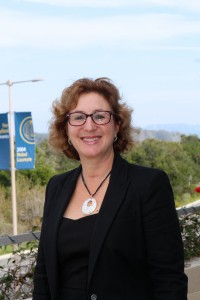
You are also invited to a follow-up faculty-grad students roundtable discussion and working lunch with Alison on Friday June 3rd at noon-2pm in PLC348. Please let other interested graduate students and faculty know and I hope many of you can make it too. Please RSVP to Brooke Cagno at bcagno@uoregon.edu before noon, places are limited.
Public Lecture: Siskind. Wednesday, June 1, 5:30-7pm, Willamette Hall 110, “(De)provincializing World War I: Latin American Literature and the reshaping of global modernism”.
Mariano Siskind is John L. Loeb Associate Professor of the Humanities, from Harvard University (Department of Romance Languages and Comparative Literature). He has recently published _Cosmopolitan Desires. Latin American Literature and the Discourses of Globalization_ (Northwestern UP) which traces a genealogy of texts on universality and cosmopolitanism, a series of significant instances during the twentieth century when Latin American intellectuals conceptualized the possibility of a Latin American modernity not in terms of particularist affirmations of national or regional difference and specificity, but as a result of assuming a cosmopolitan identity that allowed them to inscribe themselves in the universal field of modernity, and to imagine themselves standing on equal footing with their Western European peers. He is currently working on the legacy of World War I in Latin America’s modernist writing and Global War and Modernism, and is coordinating a workshop on cosmopolitan intellectual genealogies in Latin America, along colleagues from Harvard and the David Rockefeller Center for Latin American Studies.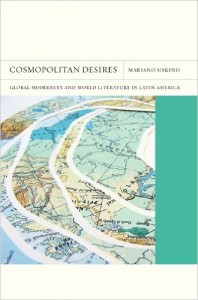
Keep Your Eyes on Guatemala MAY 18 at 6pm in Straub 145
Gabriela Martínez’s (SOJC) documentary Keep Your Eyes on Guatemala at 6pm in Straub 145
This is an important documentary which resulted from UO LAS faculty involvement in the recovery of the police archives in Guatemala in collaboration with other international teams. Please circulate widely and mark your calendars!
[embeddoc url=”https://las.uoregon.edu/files/2016/05/LAS-Film-Poster-Guatemala-5.18.16-21ubogy.pdf” download=”all” viewer=”google”]
“Activism and Social Change in Postwar Guatemala”
Irma Alicia Velásquez Nimatuj
Wednesday, May 11, 2016
5 p.m. – 6:30 p.m.
Global Scholars Hall, Room 123
University of Oregon campus
Free & open to the public
Irma Alicia Velásquez Nimatuj is a journalist, social anthropologist, and international spokeswoman who has been at the forefront in struggles for respect for indigenous cultures. Dr. Velásquez Nimatuj is the first Maya-K’iche’ woman to earn the doctorate in social anthropology, and she initiated the court case that made racial discrimination illegal in Guatemala.
Spring Film Series. Ayotzinapa: Crónica de un crimen de estado
Film Viewing: Ayotzinapa: Crónica de un crimen de estado
Ayotzinapa: Chronicle of a Crime of State is the story of the forced disappearance of 43 student teachers, which exposes the criminal complicity between the police and military authorities, and the political and economic elite of Mexico. TRT 101 minutes.
May 4th, 2016 5:00 p.m. Straub 156
Film to be followed by a round table with Anabel López Salinas (CLLAS Postdoctoral Fellow), Erin Gallo (PhD candidate in Romance Languages), Eduardo Corona (Center for Intercultural Organizing, Washington County), Antonio Salgado (Ayotzinapa in Eugene), Pedro García-Caro (Director, Latin American Studies Program).
We will connect directly via telephone conference with the mother of one of the 43 disappeared students.
[embeddoc url=”https://las.uoregon.edu/files/2016/04/Ayotzinapa-poster-1ap9557.pdf” download=”all” viewer=”google”]
Watch the trailer here!
A Bold Peace – Costa Rica’s Demilitarization
On April 27, 6-8:00 pm in Straub Hall 145, UO Sociology Professor Michael Dreiling will screen his revelatory documentary, A Bold Peace, on the impact of Costa Rica’s radical choice of national disarmament. Hors d’oeuvres and refreshments. Comments and a Q&A will follow the film.
www.aboldpeace.com – trailer & press kit
TRT: 105 minutes
English, Spanish with English Subtitles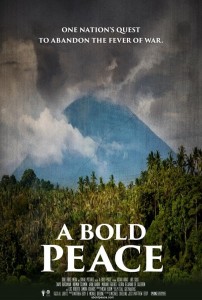
More than 60 years ago, Costa Rica became one of the only nations in the world to disband their military and to redirect national resources towards education, health, and the environment. Since then, Costa Rica has earned the number one spot in the Happy Planet Index, a ranking of countries based on the ecological footprint to behind the happiness and health of its citizens.
A Bold Peace juxtaposes the national policy of demilitarization (since 1948-49) with their investment in education, health, and the environment. Pointed parallels and contrasts are made with recent U.S. debates over the national debt, healthcare, the environment, and the escalating cost of U.S. militarism. The film builds from historical footage leading to the 1948 revolution and extensive interviews of former presidents, officials and scholars from the University of Costa Rica, Costa Rican government officials and ambassadors, leaders of major national co-operatives, and journalists and citizens of Costa Rica. Unfortunately, the Costa Rican example has received very little international attention. This documentary film brings attention to Costa Rica’s inspirational national project, answering why happiness, health, and human rights occupy a relatively prominent place in this Central American country.
Sponsored by: Latin American Studies, College of Arts & Sciences, International Studies, Political Science, Sociology, Global Justice Program, History, and the Crossings Institute
Brazilian author Salgado Maranhão and his translator Alexis Levitin
Monday, April 18th, RL, LAS and Translation Studies will host Brazilian Poet Salgado Maranhão and translator Alexis Levitin on our campus. We will have a Brown Bag @ 12pm at the Mills International Center and a public bilingual reading/discussion at 4:30pm at the Browsing Room in the Knight Library. I hope you can join us for some of these event! Find below a short bio on both Salgado Maranhão and Alexis Levitin.
======================================= =======================================
Salgado Maranhão won the prestigious Prêmio Jabuti in 1999 with Mural of Winds. In 2011, The Color of the Word won the Brazilian Academy of Letters highest poetry award. In 2014, the Brazilian PEN Club chose his recent collection, Mapping the Tribe, as best book of poetry for the year. In 2015 the Brazilian Writers Union gave him first prize, again for The Color of the Word. His newest book is Opera of Nos, launching in September in Rio de Janeiro. In addition to ten books of poetry, he has written song lyrics and made recordings with some of Brazil’s leading jazz and pop musicians. His work has appeared in numerous magazines in the USA, including Bitter Oleander, BOMB, Cream City Review, Dirty Goat, Florida Review, Massachusetts Review, and Spoon River Poetry Review. Here in the USA, he is represented by two bilingual collections of poetry: Blood of the Sun (Milkweed Editions, 2012) and Tiger Fur (White Pine Press, 2015).
Alexis Levitin’s thirty-nine books of translation include Clarice Lispector’s Soulstorm and Eugenio de Andrade’s Forbidden Words, both from New Directions. Recent books include Salgado Maranhão’s Blood of the Sun (Milkweed Editions, 2012), Eugenio de Andrade’s The Art of Patience (Red Dragonfly Press, 2013), Ana Minga’s Tobacco Dogs (The Bitter Oleander Press, 2013), Santiago Vizcaino’s Destruction in the Afternoon (Diálogos Books, 2015), Sophia de Mello Breyner Andresen’s Exemplary Tales (Tagus Press, 2015) and Salgado Maranhão’s Tiger Fur (White Pine Press, 2015). In 2012, Levitin and Maranhao completed a three month reading tour of the USA, visiting over fifty colleges and other institutions. In tre spring of 2016, they will be reading from Blood of the Sun and Tiger Fur in the Northeast, the Midwest, and the West Coast.
First LALISA Congress
Latin American, Latino, & Iberian Studies of the Pacific Northwest
New Temporal Regimes in Literature, History, and the Social Sciences
APRIL 8 & 9, 2016
Reed College, Portland, OR
LAS Winter Speaker Series: Edy Kaufman
February 9, 2016 at 3:30 p.m. Knight Library Browsing Room
TACE- Academic Diplomacy Cuba/USA: Lessons Learnt and Best Practices
Dr. Edward Edy Kaufman holds degrees in Political Science, International Relations and Sociology from the Hebrew
University of Jerusalem, a doctorate from the University of Paris (Sorbonne) in diplomatic history and post-doctoral
studies in Social Science Research Methodology at the University of Michigan, Ann Arbor. He has authored and coauthored
12 books and more than seventy articles in the general area of international relations, with an emphasis on
human rights and conflict resolution topics, and a regional specialization on Latin America and the Middle East, and
continues more than two decades team-teaching with one of them. His current research and advocacy interest are in
merging the paradigms of human rights and conflict resolution.
Prof. Kaufman has served both as Director of Center for International Development and Conflict Management [CIDCM]
at the University of Maryland and the Truman Institute for the Advancement of Peace at the Hebrew University in
Jerusalem. Dr. Kaufman is an expert in the areas of the teaching and training of conflict transformation, and
facilitation of workshops with CIDCM’s “Partners in Conflict” program. He has done extensive action research in
strengthening civil society and peacebuilding with the Palestinian-Israeli conflict, often also working jointly with
Egyptians and Jordanians,, as well as in Africa, Central, East and South Asia, the Former Soviet Union and the
Americas, including on ethnic, religious and water resource conflicts as well as human rights and democracy issues.
In the area of human rights, his work focuses on human rights education and training of the law enforcement
agencies, particularly in Latin America.
[embeddoc url=”https://las.uoregon.edu/files/2016/01/W16-LAS-Speaker-Series-1wkd0rr.pdf” download=”all” viewer=”google”]

